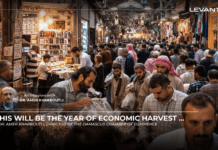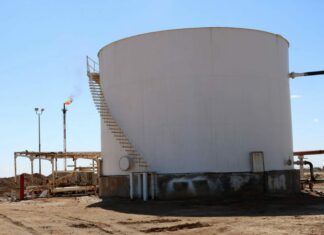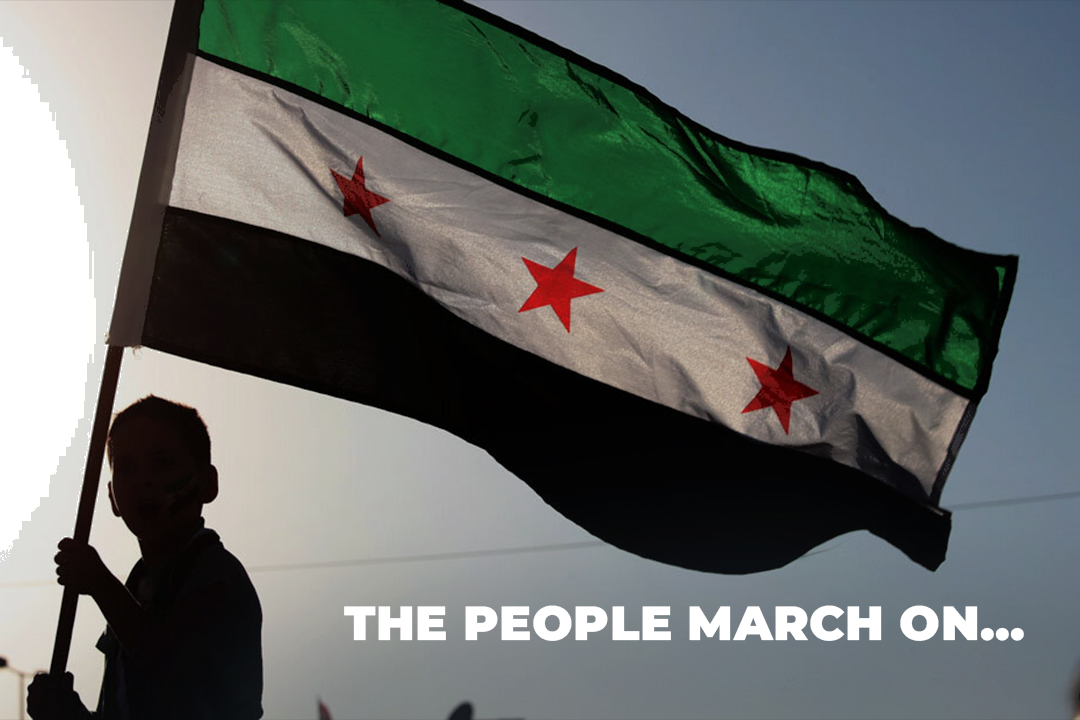
As the Syrian revolution celebrates its 13th anniversary, many reflect on the years of war, conflict, suffering, and striving, and begin to wonder if it was all worth it. These words resonate deeply across the Syrian landscape, echoing the sentiments of a nation scarred by the tumult of revolution and the ravages of war. In the midst of this somber anniversary, as Syrians pause to commemorate the journey traveled and the sacrifices made, Levant 24 poses a poignant question: “Was it worth it?” Amidst the rubble of conflict, amidst the cries of the oppressed, amidst the bloodshed and the tears, this question hangs heavy in the air, demanding an answer that transcends mere words.
Islamic Justifications & Reasons for Starting
In some circles one of the criticisms of the revolution has been that it was contrary to Islamic rulings and thus was doomed to failure, L24 spoke with Dr. Yasin Aloush Dean of Islamic Sciences at the University of Idlib regarding the revolution’s Islamic justifications, “when the people of Syria protested against this criminal regime,” he told L24, “they did so through peaceful demonstrations, sit-ins, strikes, and the like. The situation continued peacefully for about six months until the regime used live ammunition against the protesters. Therefore, the protesters were compelled to bear arms in self-defense, a right protected by Islamic law and all other laws.”
A peer of Dr. Aloush, in the faculty of the Islamic Sciences Department, Dr. Anas Ayrout, weighed in, providing a broader context to the Islamic justifications “It was not a matter of choice,” he emphasized, “but rather a necessity for self-defense, honor, wealth, and sacred values. The regime had a history of criminality, bloodshed, and violation of sanctities dating back to the massacres of Hama and Jisr al-Shughour in the ’80s. Thus, the defense of self and wealth was initiated… Revolting against oppression is legitimate.”

The two scholars informed L24 that in light of the well-documented history of aggression and oppression of Sunni Muslims in Syria, and the use of violence against the people, raising up in defense was not only permissible but in the view of some jurists, an obligatory act necessary to preserve the lives and sanctity of religious observance and practice. “The revolution is a justified response to an unjust ruler,” concludes Ayrout, “representing the greatest form of jihad.”
However, Abu Amr Al-Idlibi, a revolutionary living in Idlib City has a different view regarding the religious dimensions of the revolution, “Mosque preachers and Muslim scholars who experienced the oppression of the regime before the start of the revolution had a role in encouraging people to rise up, using religious teachings that call for standing against oppressors.” He says acknowledging the vital role Islamic values and law played in motivating the people. Conversely, al-Idlibi provides a critical lens, expressing concerns about the role of religious figures in exacerbating sectarian tensions: “Some religious figures played a negative role in diverting the uprising and turning it from a popular revolution into a sectarian war by inciting against other sects and justifying the kidnapping and looting of their properties.”
Abdul Karim al-Omar, a political activist and revolutionary in northwest Syria, told L24 that the revolution was both a right and duty whether, from a religious or secular framework, “In all circumstances, whether from an Islamic, secular, or humanitarian perspective or under any framework or designation, the revolution against Assad is a right and a duty for every Syrian.”
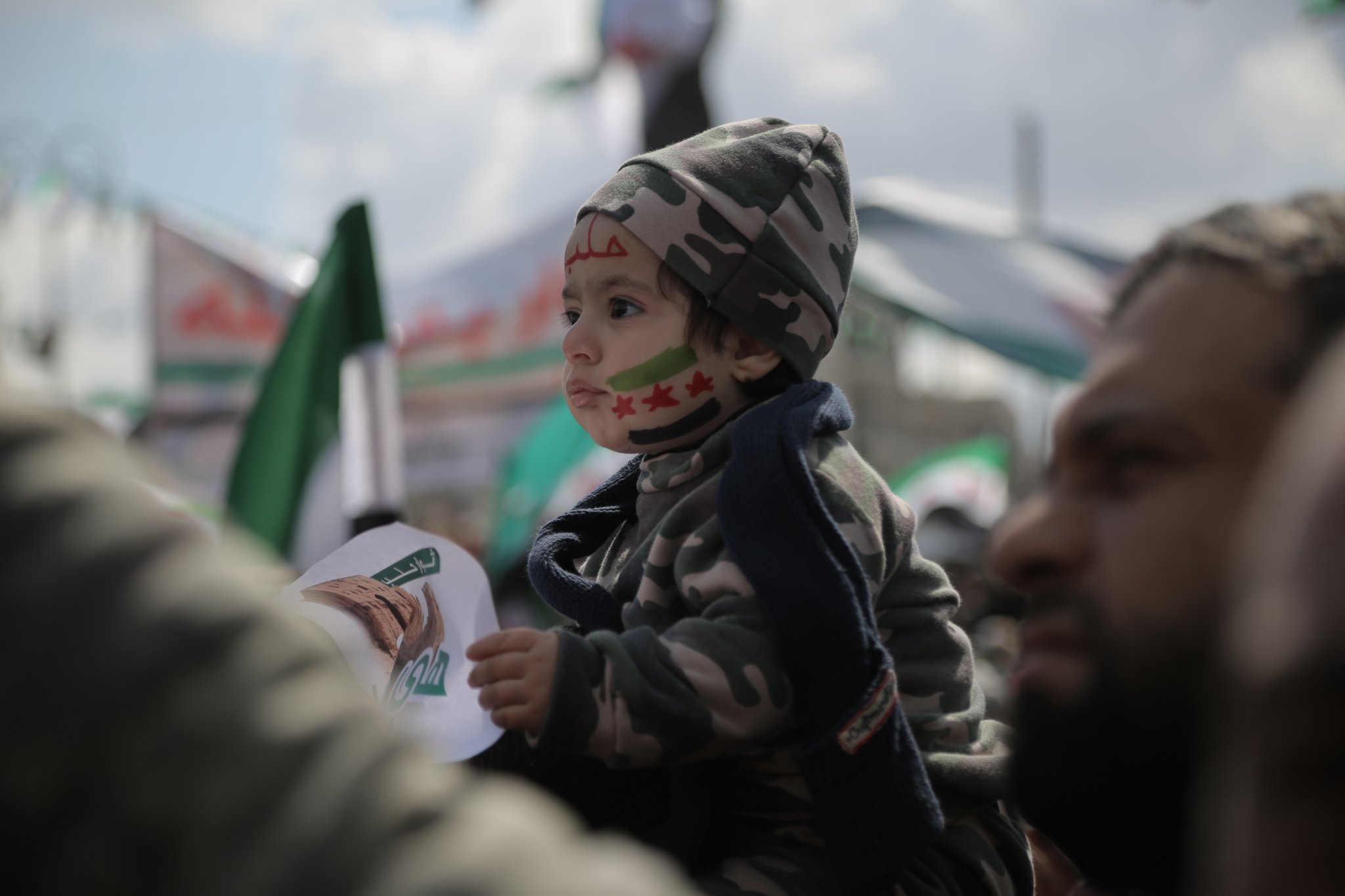
“One of the most prominent Syrian writers associated with the secular trend,” says al-Omar, “wrote at the beginning of the revolution, ‘I am with the Syrian revolution whether it leans towards Islam or secularism.’”
According to Al-Omar the revolution, like Syria itself was built from the fabrics of the people, while ideologies may have varied the goal and reason remained united, “Islamic principles played a role in sustaining the revolution despite the brutality of the Syrian regime and the sea of blood and pain. The conservative Islamic character of the Syrian people, as well as the voices of other free currents from secular streams, also played a role in sustaining the revolution and the perseverance of the Syrians.”
Islamic scholars and activists offer insights into the religious justifications for the Syrian revolution, highlighting the ethical imperative to resist tyranny and oppression. While intellectuals and ideologues play a role in the most burgeoning movements was the Syrian uprising a popular movement? What of those far from the pulpits, universities, town and city squares? L24 spoke with several women about their feelings on the revolution, its impetus, and its worth in light of the 13 years of displacement, sacrifice, and sadness.
Women of the Revolution
L24 spoke with Umm Abdou, who mentioned that of her six children – three sons and three daughters – only her daughters remain today. The olive groves she inherited from her father, her business making cheese and yogurt, her home and village, all are gone. She grew up under Hafez Assad and lost everything dear to her under the rule of his son. “The revolution was justified,” she said, “they (the Assads) wanted to change our religion. Because of the oppression and injustice, we don’t stay silent on it. This revolution represents me, and the revolution represents the Syrian people.”
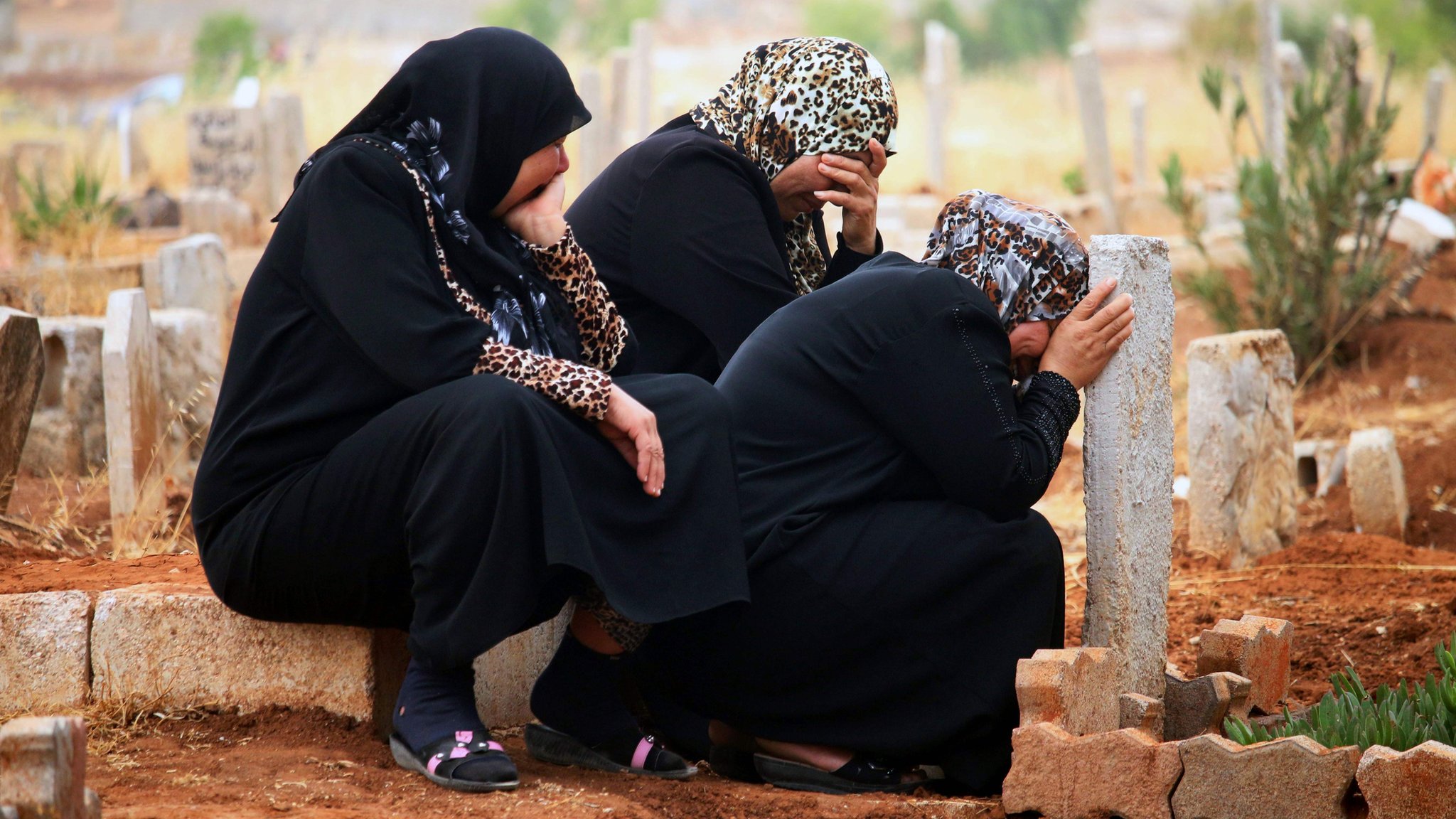
A mother of four forced to flee her village alongside her husband, parents, and brothers, Umm Abdurahman told L24, “The Alawite rule and monopolizing Sunni governance played a role in igniting the revolution. There were two or three million from the Alawite sect ruling and oppressing 17 million Sunni Muslims. Oppression was known; governance was for the Alawites, and security and military control were in their hands. Thank God, there was a revolution and it turned into jihad representing all Muslims in every part of the world.”
“Firstly,” said Umm Abdullah, a widow from Aleppo’s countryside, living in the camps after losing both her husband and village, “the revolution was by the command of Allah Almighty to establish jihad for the sake of Allah in the land of Sham (Levant), and the Assad regime is a regime of disbelief. “Jihad will continue until the Day of Judgment, so there is no such thing as a ‘failed revolution,’” she concluded. “Life before the revolution was a life of ignorance and distancing from our Islamic religion. I prefer my life now. The Assad regime is a regime of tyrants and disbelief.”
Umm Khadijah, whose husband has spent four years imprisoned for his religious convictions and outspokenness, agreed, “Before the revolution, we were spiritually dead. But during the revolution, we learned more about our religion, which is the most important. This revolution,” she says boldly, “represents every Syrian who says: ‘There is no god but Allah.’”
Was It Worth It?
While some may feel, things have improved, not all see the current situation favorably, nor do they seem optimistic regarding the future. When comparing the times before the revolution to the present Idlibi, a former fighter, laments, “I would prefer to live in the past. Economically, socially, in terms of services, and psychologically. Our lives, feelings, and even our dignity were better then,” he asserts.

While aware of the injustices of the regime he fears the current leaders have taken a turn down a similar path, “I live in opposition-controlled areas, and I fear those who represent the opposition more than the regime. Their injustice, ignorance, and corruption … makes me feel ashamed and defeated in front of civilians with whom I have relationships, and they begin to blame me for the situation the country has reached.”
Umm Abdulhadi whose husband was a commander and former judge was assassinated by ISIS, leaving her to raise her children alone, “The revolution now, even with its mistakes, represents us,” she said speaking about herself and many Syrians, “but not everyone,” she admits. However, she remains adamant that, “Retreating from the revolution is much more harmful than continuing it.” Explaining that “The revolution was justified because it rose against injustice, oppression, and Shiism. Islamic faith and principles played a role in its continuity because we know our revolution is for religion first and injustice second.”
Al-Omar recognizes that there are those among his compatriots who doubt whether things would have been better had the revolution not occurred, he counters these ideas saying, “The Syrians’ situation would not have been better if they had not risen against Assad; the suffering would have been immense but unclear to many due to the regime’s policies, which, on all fronts, before the revolution, meant destruction and clinical death for Syrians, yet many Syrians were unaware of this.”
It will not be Defeated!
As the dust settles and the echoes of battle fade into the silence of uncertainty, one truth remains steadfast amidst the turmoil: the Syrian revolution endures. With steadfast determination, it reflects the unwavering resolve and persistence characteristic of the Syrian people whose revolution began to oppose oppression and establish freedom and dignity for its people. “The revolution has neither failed nor succeeded,” proclaims al-Omar, “but it will not be defeated,” his words are a rallying cry in the face of challenges and uncertainties, the spirit of resistance remains steadfast, offering a glimmer of hope amidst adversity for the foreseeable future.

